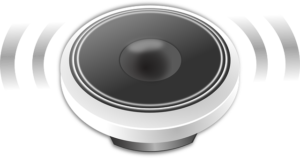Here at Bay Area Audiology, we do our best to help sufferers of tinnitus to cope with their condition. But it has been some time since we have provided an overview of tinnitus itself. Below, we have laid out the basics of tinnitus—from its causes and symptoms to its prognosis. If you don’t know the first thing about tinnitus, start here.

Here are the basics of tinnitus—from its causes and symptoms to its prognosis. If you don’t know the first thing about tinnitus, start here.
What is it?
The English word ‘tinnitus’ comes from the Latin word ‘tinnio,’ which means ‘to ring.’ This should give you a pretty good idea of what the condition is. At its most basic level, we can define tinnitus as the perception of sound where there is none. Most often, this is described as a ringing sound, but it can manifest in a variety of different ways, such as roaring or buzzing. It can vary in severity and has the potential to be present in one or both ears. But what is always true about tinnitus is this: the sufferer seems to be hearing a sound that does not correspond to external reality.
What causes it?
There are numerous causes of tinnitus. It can even be caused by excess earwax build-up. If that’s the case, this may be the best-case scenario because professionals can remove the earwax and cure the problem. In the vast majority of cases, tinnitus is permanent. Most commonly, a buzzing in the ears can be the result of noise-induced hearing loss. For many, this is one of the first signs that they may have hearing damage. It can also be caused by brain tumors, heart disease, and even some medications.
You might be wondering what causes tinnitus physiologically, as well. The unfortunate reality is that scientists have still not completely agreed on that. Generally, it indicates an issue in the auditory nerve or the brain. One theory is that people hear ringing in their ears because the auditory system is trying to compensate for hearing loss. In this respect, it can be helpful to think of tinnitus as somewhat similar to the phenomenon of phantom pains, only auditory.
What can I do about it?
While your tinnitus may never completely go away, do not despair. With the help of modern science and innovation, it can be much more tolerable to live with. The experienced professionals at Bay Area Audiology can help. Hearing aids are known to be a helpful tool to help people cope with tinnitus, as well as cochlear implants. Finally, certain medications and psychotherapy can assist you on your road to recovery.
Contact Bay Area Audiology Today
Ready to change the way you look at hearing loss? Our Doctor of Audiology, Dr. Trisha A. Bents Muth, is exceptionally experienced in the art of audiology and is dedicated to providing the absolute best solutions. Bay Area Audiology has been working to give patients a comfortable environment with thorough evaluations. We are independently owned, and unbiased when it comes to finding you the care you need.
You can always come into the office or contact us in advance to set up an appointment. We also provide updates on our social media websites. You can check out our Facebook, Twitter, LinkedIn, and Pinterest to keep up with Bay Area Audiology.
Don’t hesitate–we can help.
